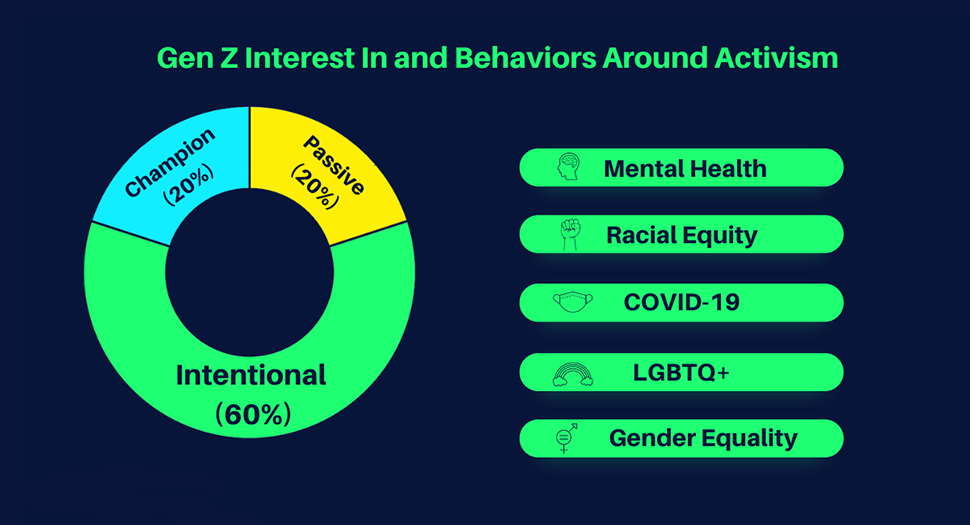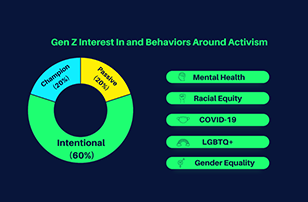From gun control to climate change, it’s no secret that today’s young people are passionate about social causes, so much so that oftentimes their interest impacts their future plans. As part of extensive research on Gen Z decision making as it relates to future planning conducted by American Student Assistance ® (ASA), we know that their interest in social causes impacts their decisions on career choices. For instance, evidence shows that 67 percent of Gen Z believes that true success is having a job that matches their passion, and 59 percent of Gen Z want a career that helps others.
In my series of four posts, we’ll take a closer look at Gen Z engagement with activism and how they’re advocating for issues they care about, their approach to online activism, and what we’ve learned as it relates to the lifelong and career-ready skills they are building along the way. These insights are based on surveys conducted with more than 500 teens in middle and high school from January through June of 2022.
In looking at Gen Z behaviors around and levels of engagement in activism, our research tells us that 55% stop and read information about social issues when they come across it. Specifically, 6 in 10 Gen Z state they are moderately engaged in activism. These are intentional activists– they are making themselves aware of issues and seeking information about social causes.
While it is encouraging to see Gen Z engaged with issues going on in the greater community, our research also shows barriers to Gen Z taking action on these issues. For instance, 42% of intentional activists say they are likely to share their opinions online. The main barriers to participating in online activism is concern over how others will feel about their opinions, not feeling like they will make a change, being unsure about how to engage, and not trusting sources.
Overall, it’s clear that Gen Z has a keen interest in social causes, and while their self-consciousness makes some hesitant to share their opinions online, many are open to learning, building confidence in and sharing their informed positions. While they might not be aware, these are also the skills that students need to begin the process of building self-advocacy skills that will serve them well as they plan for their futures.
Stay tuned for my follow-up post next month for a deep dive on Gen Z’s approach to online activism.





